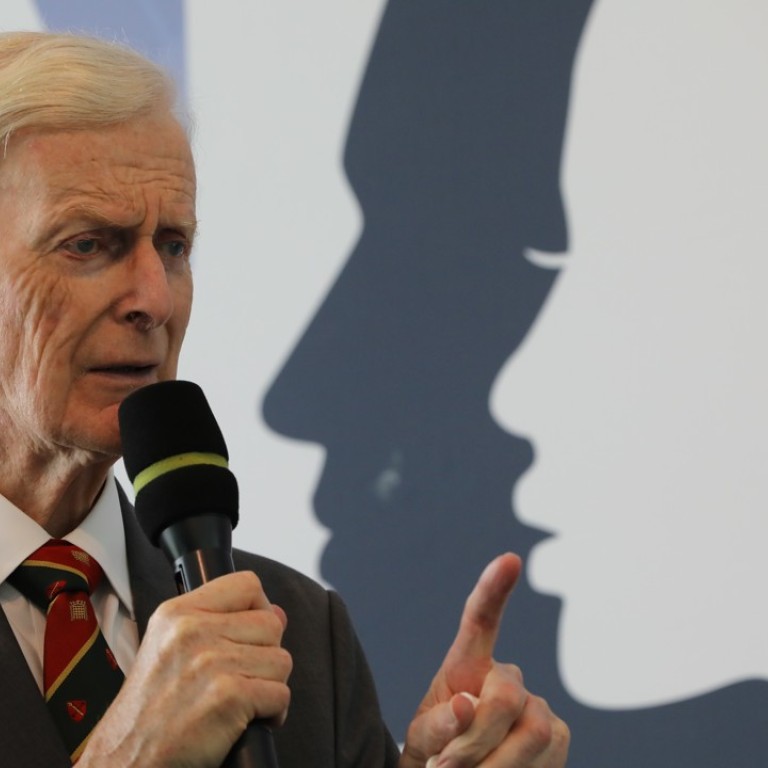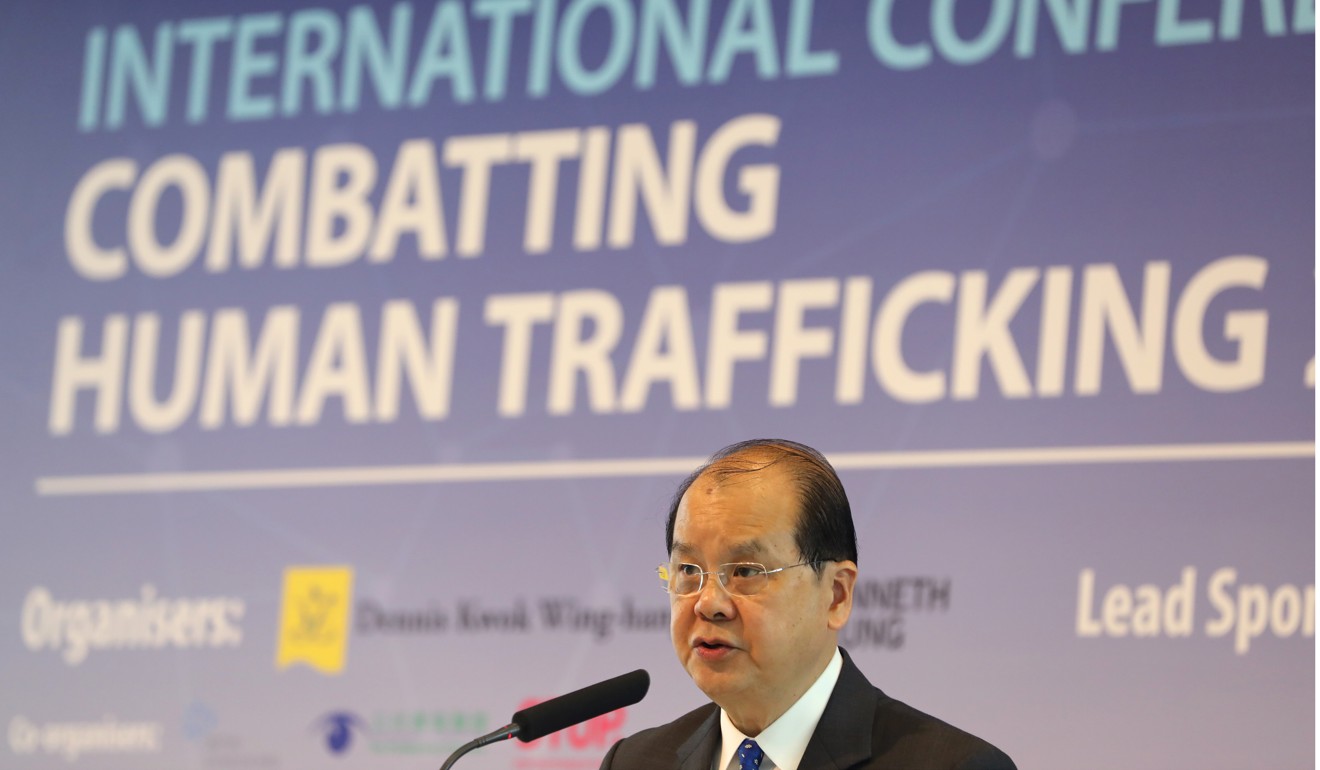
Hong Kong ‘in denial’ about human trafficking problem, British lawmaker says
Ian McColl, who proposed Britain’s latest anti-slavery law, says city needs to consolidate related offences under single piece of legislation
The leading British lawmaker behind his country’s latest anti-slavery law said on Friday that Hong Kong was “in denial” about its human trafficking problem and that a single, dedicated piece of legislation would be a good start to curbing exploitation.
Ian McColl, a member of the House of Lords, was addressing remarks by the city’s No 2 official, Matthew Cheung Kin-chung, who had argued that separate laws already in place “provided an adequate and solid legal framework”.
Hong Kong laws provide a narrow definition of human trafficking, including only trafficking for the purpose of prostitution. Forced labour is not covered, and illegal employment is a separate offence.
The local government does not compile figures on human trafficking other than exploitation of foreign domestic workers, over which authorities opened 16 and 20 cases in 2015 and 2016 respectively. But in a 2016 report the Global Slavery Index estimated there were more than 29,500 victims in the city.
“Hong Kong is the same as other countries. At first they all deny it, and that’s the problem,” McColl said, in reference to the city being placed on the Tier 2 watch list by the US State Department in its 2017 Trafficking in Persons (TIP) report, just one rank short of attracting sanctions.
Fed up with human trafficking, Hong Kong migrant workers hold vigil demanding justice
In Britain, McColl was behind a bill to consolidate various offences related to human trafficking and to push businesses to disclose the use of slavery in their purchased raw materials. The bill was adopted by then home secretary Theresa May in 2015 and passed as the Modern Slavery Act the same year.
McColl stressed it was important to “take the whole sweep” against human trafficking.
“So many departments were trying to do something and acting independently. When we bring them together, then things started to happen,” he said.
The lawmaker said that although the creation of a single blanket offence against human trafficking might not work in all countries, it would be a good starting point for Hong Kong.

Speaking at a conference on combating human trafficking, McColl noted that victims might be exploited in “more than one way”.
“In these situations, the separate offences of human trafficking for labour exploitation and for sexual exploitation, located in different statutes which we had developed, presented prosecutors with a layer of complexity that was inefficient and did not really reflect the victim’s actual experience,” he said.
Human rights lawyers have said the separation of offences under different laws subjects victims to unnecessary added suffering.
[The victims] have to face interviews with multiple government departments because they have to provide evidence and accounts of their experience to different departments enforcing different legislation
“[The victims] have to face interviews with multiple government departments because they have to provide evidence and accounts of their experience to different departments enforcing different legislation,” Patricia Ho, of Daly and Associates, said.
Chief Secretary Cheung, speaking at the same conference as McColl, said there were at least six ordinances covering related offences, including the prohibition of human trafficking related to prostitution and criminal law against illegal employment in Hong Kong.
“We do have the full substance and range of effective penalties and criminal sanctions for this purpose through a host of legislation,” he said.
Plug Hong Kong’s legal loopholes on human trafficking and forced labour, legislator tells officials
Cheung added that the government would not shy away from reviewing the legislation “when the situation warrants”, but did not give any timetable for such a review.
Ho, speaking separately, said it was unjust to charge human traffickers for a less serious crime under existing provisions.
“It would be ludicrous for any criminal regime to come forward and say we don’t need the crime of murder because we have assault, manslaughter, grievous bodily harm and so on – but we do need [murder], and the reason is it reflects the seriousness of the crime.”

